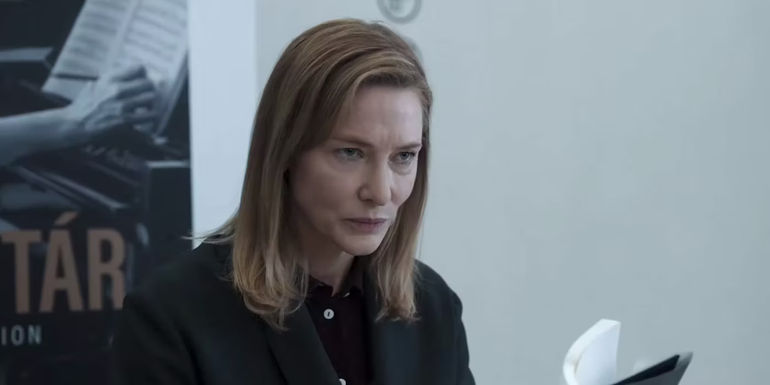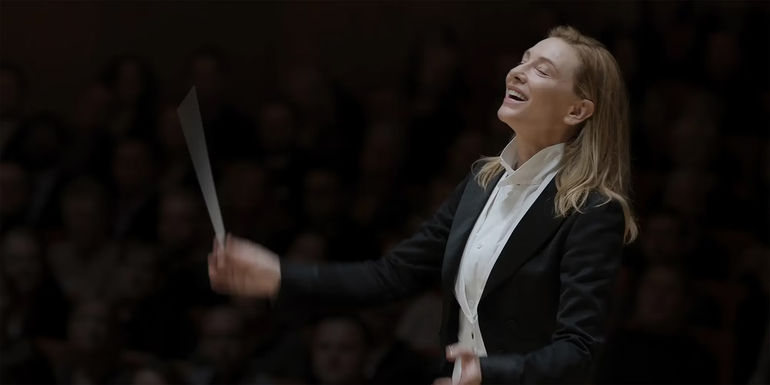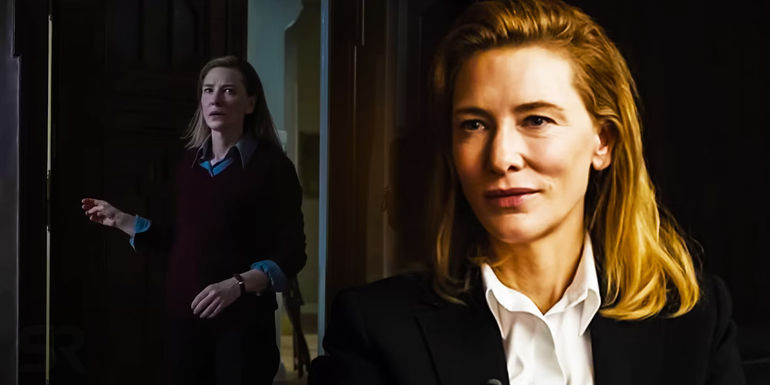
Tár Movie: The Ending and Its Interpretations

Exploring the complex narrative and ending of Tár, featuring Cate Blanchett's intense performance and the ambiguous messaging that has left audiences puzzled. This article delves into the ending's main points of confusion, its interpretations, and the underlying themes of the film.
The Tragic Crescendo: Lydia's Choices Catch Up To Her
Tár, directed by Todd Field, is a film that tells the story of Lydia Tár, a fictional conductor whose incredibly accomplished life comes crashing down around her after a series of scandals come to the surface. The film's complex narrative is matched by its rich and layered themes, leaving it the subject of much analysis from audiences. As the movie follows several different aspects of Cate Blanchett's Lydia Tár's life as they fall apart simultaneously, it ties them together in a tragic crescendo during the Tár ending scenes.
Cate Blanchett as Lydia Tar in Tar
By the finale, Lydia Tár is the subject of protests and controversy, causing her to lose her job at Julliard and her prestigious position as the conductor of a live recording of Mahler's Fifth Symphony. This leads to a further spiral for Lydia, with her wife, Sharon, preventing her from seeing their daughter. At the height of her depression, Lydia attacks her replacement conductor, causing her blacklisting. The film's success at the Golden Globes and Oscars is due to the balancing act it performs with Lydia at the end, as she finds work in the Philippines, signaling a second chance. However, a scene at a brothel implies that Lydia will forever carry guilt for how she sexually abused her students. The ending scene reveals Lydia conducting a live performance of the score from the video game series Monster Hunter.
Cate Blanchett as Lydia Tar conducting in Tar
Was Tár's Ending A Hallucination?
One interpretation of the Tár ending is that the events are a hallucination. The cinematography and editing change drastically, with floaty camerawork and intentional continuity errors, hinting that something isn't right. Subsequent scenes show the protests against Lydia increasing drastically in a way that doesn't appear logical. This reading holds up, and Tár makes more sense if the final scenes are a guilt-induced hallucination, with the film's ending taking place entirely inside Lydia's head.
Cate Blanchett as Lydia Tar in Tar.
Why Tár Ends With Cate Blanchett's Lydia Conducting Monster Hunter
For such a serious and dark movie, Tár has a peculiarly light ending, with Lydia conducting in front of a live audience of Monster Hunter fans in cosplay. The film goes into detail on Lydia's past accomplishments, explaining she has written books and is attached to multiple prestigious projects at the beginning of the film. Lydia even won an Emmy, a Golden Globe, an Oscar, and a Tony, highlighting her successful career. This is juxtaposed with the Tár's ending, in which Lydia is conducting the last piece anyone would expect.
Cate Blanchett conducting in TAR.
Lydia's character, known for looking down upon what she sees as lesser mediums, conducts the Monster Hunter game and movie series, showing how her life has been flipped upside down. The Tár ending also shows that her obsession with perfecting music will never end, with the scene seemingly kicking off Lydia's attempts to get back to the top of the music world. The choice for Monster Hunter specifically for the Tár ending is likely deliberate, as it thematically fits Lydia's perception as a 'monster' and the public and media hounding of her throughout Tár.
Artemis and the Hunter in Monster Hunter
Is Lydia Tár A Villain?
Judged solely by her actions, Lydia Tár should undoubtedly be seen as a villain. She is tough on her students, going on a racist tirade that causes one of her pupils to quit her class. Worst still, Lydia grooms some of her female students into sexual relationships, leading to tragic consequences. The repeated pattern of grooming makes Lydia Tár a villain, and the film shows her being held accountable for her actions. However, Tár doesn't directly call Lydia a villain, leaving it up to the audience to determine that rather than spelling it out, making the film controversial but much more complex and engaging.
Nina Hoss and Cate Blanchett in Tar
Tár's Real Meaning Explained
The film is about how abusive power dynamics are created, maintained, and eventually torn down. Tár explores the lies that abusers tell themselves in constant attempts to justify their actions, highlighting the way that Lydia's position of power and influence necessitates that any relationship she has with her students will be abusive. The complexity of Tár undoubtedly helped it to its place at the 2023 Oscars, tackling complex ideas unique to this story.
Cate Blanchett as Lydia Tar conducting in Tar
The Tár Ending Helps To Secure Its Acclaim
The movie leaves things open-ended, contributing to the mixed audience reaction to Tár, yet it is likely another reason the movie was an awards season favorite. It gives an ending that continues the complexities of the story and sticks to a more realistic approach. The Tár ending shows the consequences of Lydia's actions while cementing her humbling position, making for a complete story that has been embraced so strongly, even leading to Tár's six Oscar nominations and Cate Blanchett's Golden Globes win.
Cate Blanchett as Lydia Tár




















